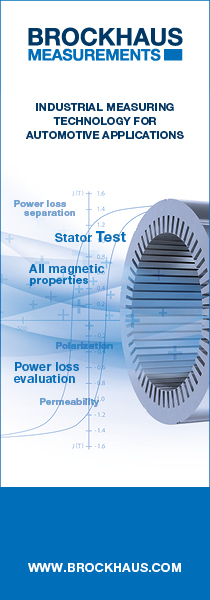Updated 16 November 2020
Details on joining the seminar have been emailed to all attendees
If you haven’t received them, please check your Junk / Spam folder
If you still haven’t got them, please contact us at astewart@ukmagsoc.org
Soft Magnetic Materials are an essential area of the overall world of magnetics that we all rely on, but is normally over shadowed by Hard / Permanent Magnetic Materials.
Traditional Soft Magnetic (SMM) alloys such as Electrical Steels and SiFe products have been used for almost a century now and are the ‘back bone’ to most of the transformers in use today. Over the last 20 – 30 years as frequencies have increased to help reduce the size of transformers, more and more exotic products have been introduced into the SMM arena.
This seminar looks to highlight some of the areas associated with SMM, including the complex testing that can be required to validate their performance, as well as introduce some new materials and expand on what can be achieved with these interesting and essential alloys, and provide insight into new developments relating to applications for SMM, with a focus on power electronics from 50Hz up to switching frequencies approaching 1MHz, in the drive to make ever more efficient products that are smaller and cost effective in today’s challenging markets.
Join us to hear a diverse range of speakers including manufactures of components, wound parts, sub-system, and equipment manufacturers during the two afternoon seminar, which will also have networking opportunties and panel items.
PROGRAMME
The programme will run over two days, 10th and 11th November 2020, starting at 13:50 UK each day, through to around 18:30 UK. Each day will consist of talks with Q&A, panel discussions, exhibitors, and networking sessions.
All times are UK.
EVENT PLATFORM
The seminar will be hosted on hopin because it offers an intuitive online conference experience. As well as the talks on the Stage, at any time you can
- visit and talk with exhibitors in the Expo,
- set up small Sessions to talk together,
- search for and Invite delegates you want to speak to through the People list,
- Chat to the whole event, a session or an exhibitor’s booth,
- Ask questions of speakers and the whole event via Chat,
- examine the event Schedule in Reception for any changes,
- try the random delegate connection of Networking (an online version of standing in the queue for coffee and talking to the person behind you).
CONTINUING CONTACT / GDPR
Please note, by providing contact details during registration, you authorise us to
- use these contact details to let you know details of this event, and
- add your contact details to our contact database to let you know about future events that may be of interest.
Please let us know at enquiries@ukmagsoc.org at any time if you do not wish to be contacted in this way. Also, we can remove you from our contact schedule at any point in the future.





